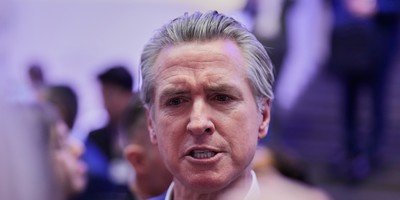I know what it’s like to make bad choices.
I was a teenage troublemaker headed nowhere fast. In my neighborhood, getting locked up felt like a rite of passage—not a warning sign. But I was one of the lucky ones. I had a mother, coaches, and even a school janitor who wouldn’t give up on me—and a game that demanded discipline and gave me purpose.
Football saved my life. It pulled me off the streets and pushed me all the way to the NFL. Now I speak up for those who never got that shot.
You never know who might help change your life. A second chance often starts with a single person who believes in you. But what if we didn’t leave it to chance? What if we built systems that offered people the opportunity to redeem themselves before it’s too late?
The United States spends $300 billion annually to incarcerate individuals. Ninety-five percent of those people will eventually re-enter society. And yet, 70 percent of those released end up reoffending. That’s not just a moral failing—it’s a policy failure. And it shows that throwing money at incarceration without offering rehabilitation is a losing game.
That’s why I support Second Chance Month—observed in April, but important year-round—established under the Trump administration in 2018. It's not just a symbolic gesture. It represents a commitment to accountability, public safety, and smarter justice. Because here’s the truth: Punishment alone doesn’t work. Opportunity does.
Now, let me be clear: some people are dangerous and should be locked up—that’s a reality we can't ignore. Accountability will always matter. But for those who have served their time, taken responsibility, and want to move forward, we must open the door to opportunity. That’s where a second chance comes in. I'm especially passionate about helping nonviolent juveniles before they get stuck in a cycle they can’t escape.
Recommended
If we intervene early, we can change lives—and save futures.
My three "Ps" for successful rehabilitation are people, programs, and policies. We need people who understand struggle, programs that provide a path forward, and policies that prioritize rehabilitation, not recidivism.
Every successful reentry means one less arrest, one less court case, one less burden on our officers. Police don’t need more paperwork—they need fewer repeat offenders. Give people a job, and you give officers one less call to answer.
Work can bring dignity, structure, and stability to one's life. Second-chance hiring allows people to contribute positively, despite past mistakes. Florida, Georgia, and Texas, among other states, are proving that second-chance hiring isn’t just compassionate—it’s effective. Private companies such as Walmart and Greyston Bakery are proving that giving people another shot makes communities safer and businesses stronger.
In short, second-chance policies create a pathway for success for individuals who have taken accountability for their actions and are ready to rebuild their lives. By supporting employment opportunities for the formerly incarcerated, these policies empower people to reintegrate into their communities, reconnect with their families, and contribute meaningfully to society after serving their time.
Redemption isn’t weakness—it’s wisdom. If we want safer streets, stronger families, and a justice system that actually works, we need to stop closing the door on people who are ready to walk a better path. It’s time to make second chances the rule—not the rare exception.
Frank D. Murphy is a former NFL wide receiver who played for the Chicago Bears, Tampa Bay Buccaneers & the Miami Dolphins. In 2009, he founded the nonprofit CCS Plan Legacy Institute and now chairs the Athletes for America Coalition at the America First Policy Institute. He is also the author of The Man Behind the Helmet: ...and the God of Second Chances.

























Join the conversation as a VIP Member